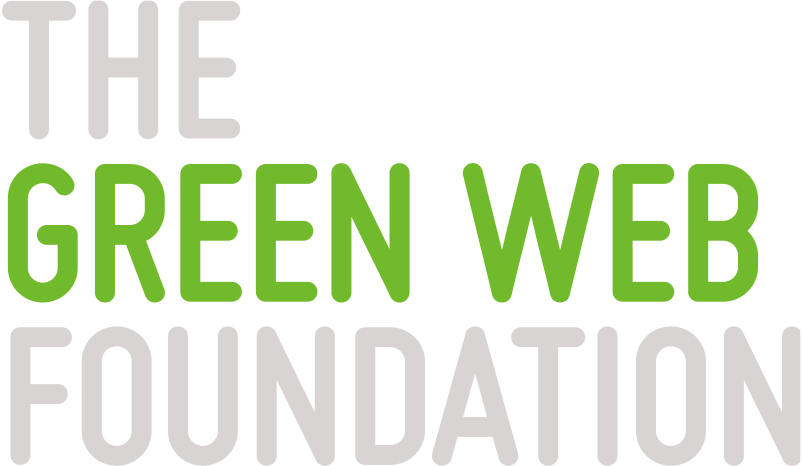The Open Green Web
Ethical meta-search filter on green hosted websites
The world wide web has become a mainstay of our modern society, but it is also responsible for a significant use of natural resources. Over the last ten years, The Green Web Foundation (TGWF) has developed a global database of around 1000 hosters in 62 countries that deliver green hosting to their customers, to help speed a transition away from a fossil fuel powered web. This has resulted in roughly 1.5 billion lookups since 2011 - through its browser based plugins, manual checks on the TGWF website and its API, provided by an open source platform. But what if you want to take things one step further? This project will create the world's first search engine with ethical filtering, that will exclusively show green hosted results. In addition to giving a new choice of search engine to environmentally conscious web users, all the code and data will be open sourced. This creates a reference implementation for wider adoption across industry of search providers, increasing demand and visibility around how we power the web. The project build upon the open source search engine Searx, and will collaborate with the developers of that search tool to make "green" search an optional feature for all installs of Searx.
- The project's own website: https://www.thegreenwebfoundation.org
Why does this actually matter to end users?
Climate change is the most crucial (and divisive) issue of our time. The world needs to switch from fossil fuels to renewable sources of energy as soon as possible, not to avoid the consequences of a rising worldwide temperature, but to limit the irrevocable damage it will cause to our environment, food and vital infrastructures as much as we can. Among those vital infrastructures are the internet and the world wide web, that billions of people around the world everyday and have become the foundation under our economies, societies and even democracies. But what fuels these digital lifelines? When you think of sustainability, grey factories billowing grey smoke may come to mind first, or a highway jam packed with cars. What you may not know is that the world wide web is quite power-hungry itself, taking up a sizable chunk of the electricity produced worldwide and as the technology keeps growing, so does its environmental impact. We need to green the web to make a technology so important to modern life actually durable and sustainable.
So what can a single user do to green the worldwide web? Think of internet users as consumers. Vegetarian food is quickly becoming more popular because consumers buy vegetarian, favor vegetarian restaurants and food manufacturers and restaurant holders hop onto the trend and offer more plant-based products. The same thing is (slowly) happening in other market places and consumer environments. Now think of the world wide web: users are online consumers and hosting companies are product manufacturers. Some hosting companies are seemingly not worried about the environment and 'host grey', fueling their power consumption with fossil-based electricity. Other web hosting services understand the dire consequences of climate change and 'host green', relying on renewable energy sources to keep their sites in the air. How can an environmentally aware user-consumer know that the sites they visit are hosted green and avoid grey hosting services?
Since 2006 the Green Web Foundation has made it clear how the web is powered and over the years has built the largest worldwide dataset which sites are driven by renewable energy. Users can see whether their favorite sites are hosted grey or green with browser plugins, developers can connect their website to the Green Web Feed API and automatically verify sustainable hosted sites and hosting companies can learn how to green their services. So far the Green Web project has resulted in 1.5 billion lookups since 2011.
Seeing which sites are hosted grey or green is one way to help internet users make environmental choices online, but what if they could choose to only visit sustainable websites? The Open Green Web wants to develop a search engine with ethical filtering, that only show green hosted results drawn from the Green Web Foundation dataset. This green search engine will be based on the fully customizable and open-source search engine Searx, that aggregates results from a variety of search engines and protects your privacy against search tracking. Any Searx instance will be able to use the ethical filter and introduce green search to its users. On top of this, the dataset of 1.5 billion grey and green hosted sites will be opened up to academic research and all the software developed by the Green Web Foundation (like the browser plugins and the API) will be open-sourced.
To green the web, users and hosting services first need to know what parts of it are grey, and how these can become more sustainable. Because search engines for many users are the everyday entry point to the world wide web, adding ethical filtering here can have a significant impact on the sustainability of users' online lives.
Run by Stichting The Green Web Foundation
This project was funded through the NGI0 Discovery Fund, a fund established by NLnet with financial support from the European Commission's Next Generation Internet programme, under the aegis of DG Communications Networks, Content and Technology under grant agreement No 825322.

